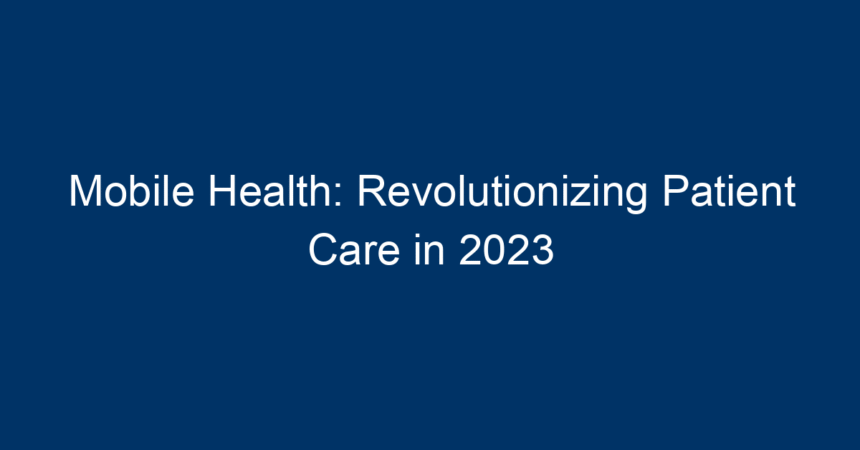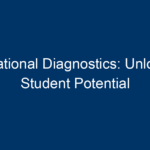In a world increasingly driven by technology, the medical field is undergoing a significant transformation. Mobile health (mHealth) is at the forefront of this revolution, leveraging mobile devices and applications to enhance patient care. As we navigate through 2023, it’s essential to recognize how mobile health is not just a trend but a vital component of modern healthcare systems. This article explores the profound impact of mobile health on patient care, highlighting its benefits, innovations, and future prospects.
Understanding Mobile Health
Mobile health refers to the use of mobile devices, such as smartphones and tablets, to support medical and public health practices. This can include everything from appointment scheduling and telemedicine to health monitoring applications and wearable devices. The combination of technology and healthcare has opened up new avenues for both patients and providers, creating a more streamlined and efficient approach to health management.
The Growth of Mobile Health
The growth of mobile health technology has been meteoric. According to recent statistics, the global mHealth market is expected to reach $238 billion by 2026. This rapid progress is driven by several factors, including increased smartphone penetration, a heightened focus on preventive healthcare, and a shift towards patient-centered care.
Key Components of Mobile Health
-
Telemedicine: This involves virtual consultations between healthcare providers and patients. Patients can connect with their doctors from the comfort of their homes, making healthcare more accessible and convenient.
-
Wearable Devices: Gadgets such as fitness bracelets and smartwatches can track vital signs, physical activity, and sleep patterns. This real-time data can be pivotal in managing chronic diseases and promoting healthier lifestyles.
- Health Apps: From medication reminders to symptom checkers, health applications are increasingly becoming an integral part of patient care. They empower users to take control of their health and facilitate better communication with healthcare providers.
Transforming Patient Care
Enhanced Accessibility
One of the primary advantages of mobile health is the increased accessibility it offers to patients. Rural and underserved communities often experience barriers to traditional healthcare access. Mobile health bridges this gap by providing timely health information and services directly to patients’ fingertips.
Remote Monitoring
Remote patient monitoring (RPM) is another vital aspect of mobile health. By using sensors and wearables, healthcare providers can monitor patients’ conditions in real-time, enabling early intervention when necessary. This is particularly beneficial for patients with chronic diseases such as diabetes or hypertension.
Patient Engagement and Empowerment
Mobile health promotes patient engagement through interactive features. Patients can track their progress, set health goals, and receive personalized feedback. This empowerment leads to improved adherence to treatment plans and better overall health outcomes.
Educational Tools
Many mobile health applications provide educational resources that inform patients about their health conditions. Knowledge is power, and when patients understand their illnesses, they are more likely to participate actively in their treatment processes.
Cost-Effectiveness
Mobile health initiatives can drastically reduce costs associated with traditional healthcare. By minimizing the need for in-person visits and hospital readmissions, mHealth solutions can save both patients and healthcare systems significant amounts of money.
Resource Allocation
With the automation of routine tasks and remote consultations, healthcare professionals can allocate their time and resources more efficiently, allowing them to focus on more complex cases and patient needs.
Innovations in Mobile Health
Artificial Intelligence and Machine Learning
The integration of AI and machine learning into mobile health applications is a game-changer. These technologies can analyze health data to provide personalized recommendations, predict potential health issues, and aid in diagnosis. As AI continues to evolve, its potential to enhance mobile health will only grow.
Improving Mental Health Services
Mental health is an often-overlooked aspect of patient care. Mobile health has provided a platform for mental health services through therapy apps, mood trackers, and support groups. These tools make it easier for individuals to seek help and receive support without stigma.
Telepsychiatry
Telepsychiatry allows mental health professionals to conduct consultations via video conferencing. This innovation enhances access to mental health care, especially for those living in remote areas.
Blockchain Technology
As mobile health continues to expand, so does the need for secure data management. Blockchain technology offers a secure and transparent method of storing patient data, enhancing privacy and trust in mobile health applications.
Challenges Facing Mobile Health
While mobile health presents numerous advantages, it is not without challenges.
Data Privacy and Security
With the increased use of mobile applications comes the risk of data breaches. Ensuring the privacy and security of sensitive patient information is paramount. As mobile health technologies evolve, they must prioritize safeguarding patient data against unauthorized access.
Digital Divide
Despite the widespread use of smartphones, a digital divide persists. Some populations lack adequate access to mobile technology, creating disparities in healthcare access. Bridging this divide is crucial for the equitable implementation of mobile health solutions.
Regulatory Compliance
Navigating the plethora of regulations surrounding healthcare can be complex. Mobile health applications must comply with various laws and standards to ensure patient safety and data integrity.
The Future of Mobile Health
As we look ahead, the future of mobile health is promising. We can expect several significant trends shaping the industry:
Increased Personalization
The use of big data and advanced analytics will enable healthcare providers to deliver even more personalized care. Algorithms will analyze patient data to create tailored health plans and interventions.
Integration with Traditional Health Systems
Mobile health will increasingly integrate with existing healthcare systems, resulting in a more cohesive patient care experience. This integration will facilitate better communication between healthcare providers and patients, streamlining care processes.
Global Health Outreach
Mobile health has the potential to revolutionize global health outreach. As developing countries adopt mobile technologies, they can improve healthcare delivery, track outbreaks, and create preventative health programs.
Conclusion: Actionable Insights for Patients and Providers
As mobile health continues to evolve, both patients and healthcare providers must be proactive in embracing this change. Here are some actionable insights:
For Patients
-
Leverage Health Apps: Explore various health apps to manage your fitness, medication, and overall health effectively.
-
Stay Informed: Educate yourself about your health conditions through reputable mobile health resources.
- Communicate with Your Provider: Use telemedicine to communicate with your healthcare provider for timely consultations.
For Providers
-
Embrace Technology: Invest in mHealth solutions that enhance patient engagement and monitoring.
-
Prioritize Training: Ensure staff are trained in the effective use of mobile health technologies.
- Foster Partnerships: Collaborate with tech companies to develop innovative solutions that meet the specific needs of your patient population.
In conclusion, mobile health is revolutionizing patient care in 2023 and beyond. By staying informed and actively participating in their health management, both patients and providers can harness the potential of this transformative field for a healthier future.




